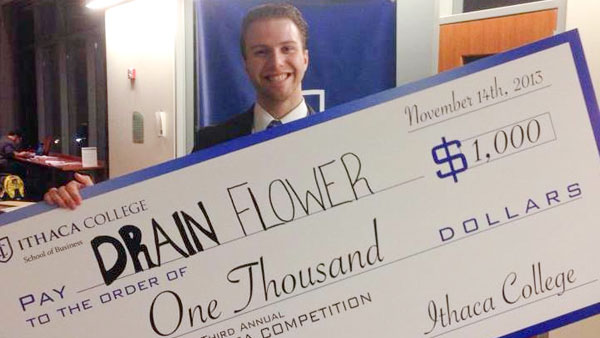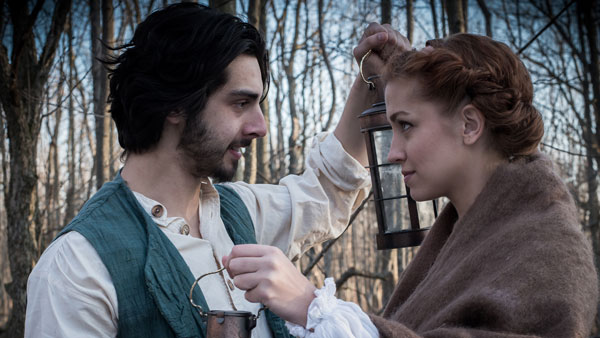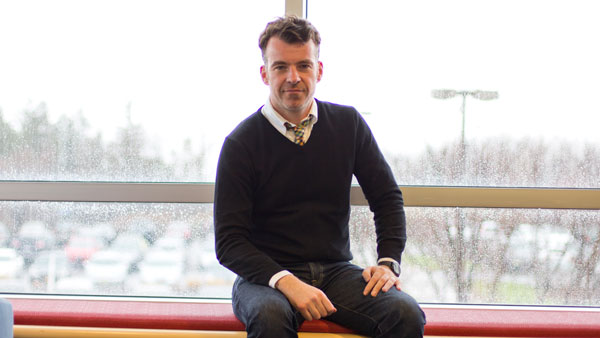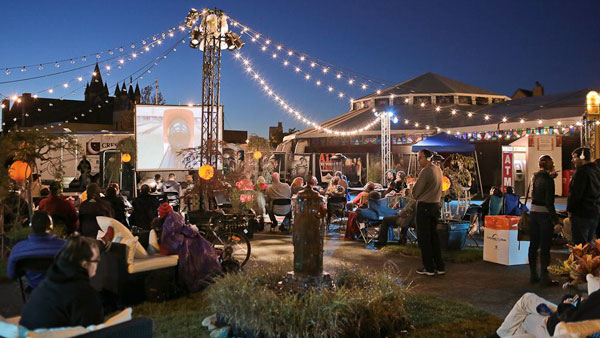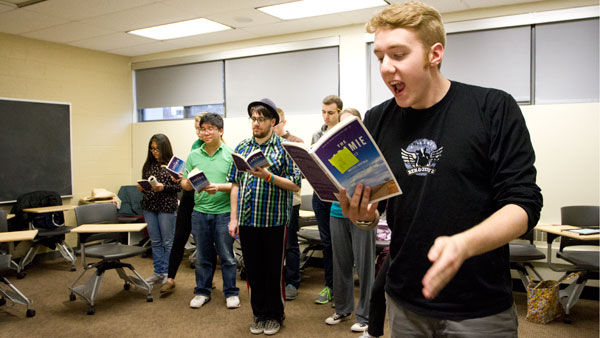Ithaca College’s Third Annual Business Idea Competition concluded on Nov. 14, with the final results designating that three concepts won a first-place prize of $1,000. With categories of Lifestyle, Health & Safety and Services, the three winning ideas each took on distinct issues, submitting an array of ideas for their businesses.
For junior Zach Briggs, award-winning ideas are found at the bottom of his apartment’s clogged sink. At the outset, his food-clogged pipes were something that Briggs figured he would have to write off as an inevitable nuisance. But as the water rose and the plumbers came and went, he said he realized that a jammed-up sink was an issue for which few had a simple solution.
“As soon as that drain problem happened, I was like, ‘People just think about this as something that just happens,’” Briggs said. “But they don’t think of this as a problem because it can’t be fixed currently.”
Briggs decided that if few were thinking about a clogged drain, then he would do the thinking for them. He conceived “Drainflower,” a clean hands drain-clearing device that attaches to a standard drain catcher and hangs down into the pipe. Using a series of silicone blades, or “petals,” the device acts as a no-power garbage disposal, effectively keeping pipes clear. He entered “Drainflower” into the competition and took first place in the Lifestyle category.
Brad Treat, temporary contest administrator who oversaw the progression of the competition’s projects, said Briggs’ biggest strength was reaching out to the audience that his idea would impact most.
“The good businesses are doing a couple things,” Treat said. “One is, they solve a real problem, and the other is they go and talk to real customers. And Zach’s a good example with ‘Drainflower.’ His idea got much better as he went and talked to potential customers.”
With plans to use his prize money to develop a prototype, Briggs said he sees the invention succeeding in the future.
“I could absolutely see this type of product being standard,” he said. “You have a fork, you have spoon, you have a drain catcher and now you’re going to have a Drainflower.”
As Briggs’ “Drainflower” takes on the woes of clogged plumbing, physical therapy graduate students Antoine Connors and James Newton’s “Snoball” intends to follow more therapeutic pursuits. They took first prize in Health & Safety with their design of a new spherical take on the ice-pack that is rollable, splits into two hemispheres and numbs whatever hurts. The pair agreed that fashioning their prize-winning design was the greatest challenge.
“We wanted something that was highly functional, cheap to make and to sell and would work very well,” Connors said. “When you combine that trifecta, it’s a nightmare.”
With the intent to have a working prototype by 2014, Newton and Connors are on the fast track to seeing “Snoball” realized. Newton said once the competition ended, the outpouring of excitement from the audience solidified the product’s potential.
“Getting that kind of feedback from people who don’t even know us or know anything about our product really was kind of the eureka moment,” Newton said.
While others strive to devise future household staples, contestants like senior Luca Pandolfi prefer to brainstorm on a much larger scale. Pandolfi’s “Eterna,” a proposed self-sustainable mass production farm, would aid production of basic human needs in less arable regions of Africa. Pandolfi said in his presentation that his years of study on the topic inspired the project.
“The problem that kept arising throughout my studies is hunger in Africa, which seems to be a dominant problem throughout the last few decades, and there still hasn’t been any major steps toward resolving it,” Pandolfi said.
“Eterna’s” only inputs are sun, wind and seawater. From these three resources, the farm would be capable of producing drinking water, animal products, electricity, biofuel and produce. But with a projected price-tag of $10 million, there is still a ways to go before “Eterna” becomes a reality.
Looking toward the future, Pandolfi said he ultimately wants to turn “Eterna” into a leader in researching sustainable enterprise.
“I really wanted to make a project that could become the new leading company in sustainable research technology,” Pandolfi said. “That was the idea, to make something that once the first one worked out, and it worked out well, I could start building these farms all over the world.”
Though Pandolfi’s goals are especially ambitious, Treat said “Eterna’s” large scope is an exciting prospect.
“[Luca] is a big, big thinker,” Treat said. “When you start talking about ‘I’m going to change the world’ or solving world hunger — we’re swinging for the fences, baby.”
Be it drain cleaners, ice-packs or mass-producing farms, each of the concepts seeks to serve their own purpose. Despite their differences, the proposals all find one common ground: a passion to see their visions become reality. Treat said the true prize for competitors is to see their project take a step closer to reality.
“I think for them, it makes [their idea] real,” Treat said. “We’re not asking them to create something for the sake of a grade, they’re building something for themselves. I think they like that reality aspect of it.”


